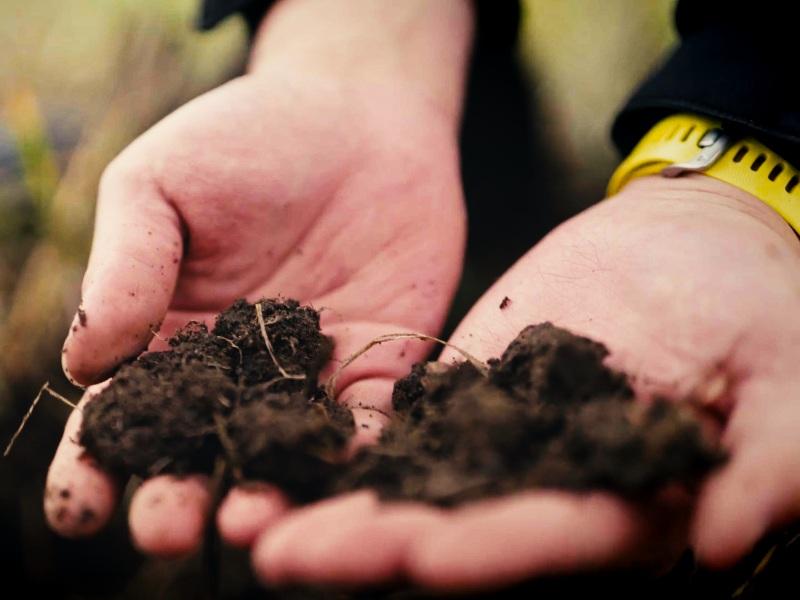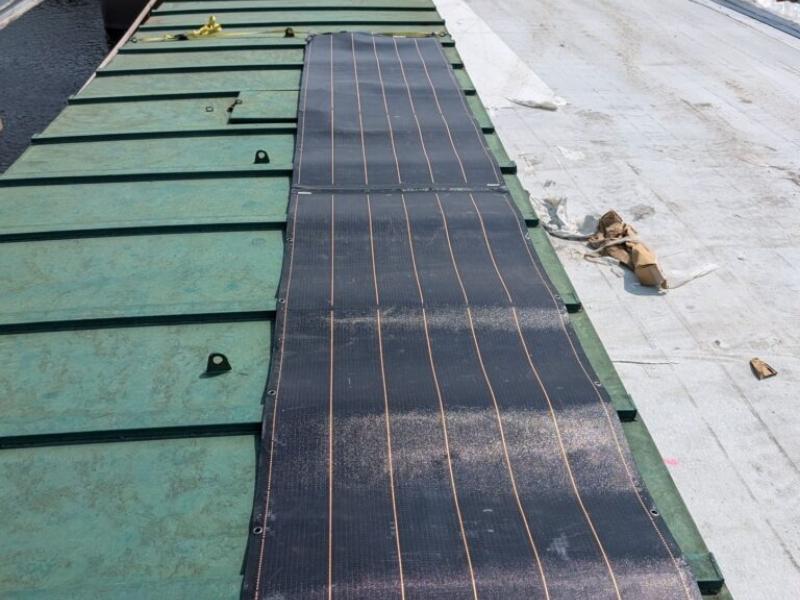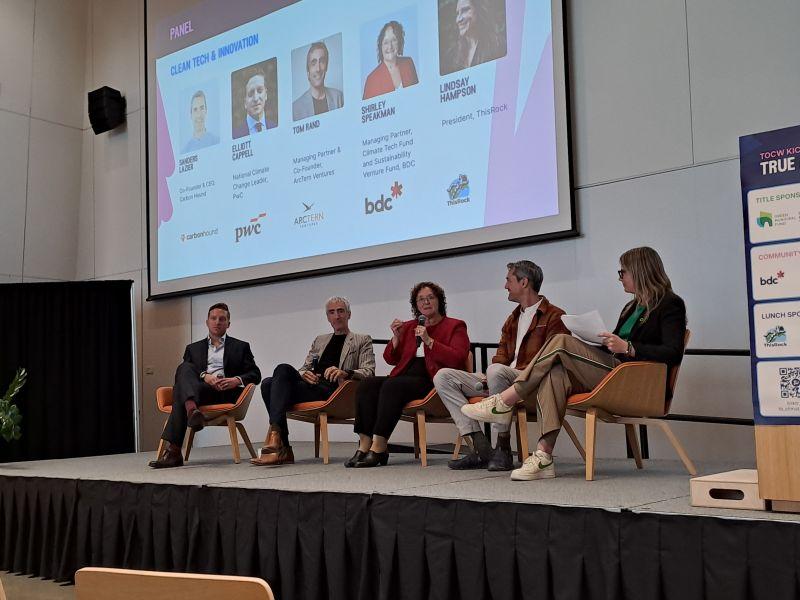
Montreal-based Polystyvert Inc. will be changing its name to UpSolv as it shifts from recycling the plastic used to make Styrofoam to a wider range of commonly used plastics.
Noting that its original name referred only to polystyrene, the diversification plan and renaming that will be carried out in the coming months reflects “what we are today and what we will be tomorrow,” Nathalie Morin, president and CEO of UpSolv, told Sustainable Biz Canada in an interview.
UpSolv developed a process that dissolves and reforms polystyrene into reusable pellets. It emits up to 90 per cent less greenhouse gas compared to producing virgin plastics while also being economically competitive.
As its technology matured, the company saw the potential to broaden its horizons to other kinds of plastics, such as acrylonitrile butadiene styrene (ABS), used to make electronics, toys and automotive parts.
“We’re being very careful not to diversify too fast, but the potential is huge,” Morin said.
From polystyrene to ABS
UpSolv spent three years with a partner to adapt its recycling technology to ABS. Following successful pilot tests, UpSolv inched closer to a final investment decision for its commercial-scale facility in Montreal. The company then decided it was mature enough to go from servicing only polystyrene to becoming a technology platform, Morin explained.
Fundamentally, the company’s process remains the same for polystyrene or ABS. The plastic feedstock is mixed with an essential oil called cymene, which dissolves the plastic and leaves behind contaminants that are filtered out.
An anti-solvent is blended into the purified, liquified plastic to turn it into a paste. The paste is shaped into pellets that are on par with virgin material in quality and can be sold to industry players.
The cymene is reusable and the process is water-free, furthering the sustainability credentials of UpSolv’s technology. Unlike mechanical recycling which limits the amount of times a plastic can be recycled, tests have shown no ceiling on the amount of times plastic can be recycled using UpSolv’s dissolution process, Morin said.
Additionally, it is a low-temperature, low-pressure process, which means it operates cost effectively and is competitive with virgin plastic in pricing, she added.
For its Montreal facility, UpSolv was able to sign offtake agreements that are the same price of virgin plastic. But “because it’s high quality recycled material, so of course there is a green premium that goes with it,” Morin said.
Remolding itself to more plastics

The approximately 25,000-square-foot Montreal commercial facility remains a top priority for UpSolv. The company is ready to commence construction and is a few months away from a final investment decision, with supply and offtake agreements in the works.
Last year, UpSolv raised $16 million in a first tranche of Series B funding to finance the facility. In 2023, it raised a total of $40 million.
Though geopolitical and economic uncertainties have pushed back the initial timeline for the project, Morin said the company is “very happy” it is able to move forward. The current expectation is to have the facility operational before the end of 2026. It is designed to produce 9,000 tonnes of polystyrene per year.
Suppliers of the polystyrene that will feed the system are expected to be virgin plastic producers, plastic brokers and mechanical recyclers that cannot handle contaminated feedstock. UpSolv is also in discussions with extended producer responsibility programs in Quebec and other locations in Canada. Local suppliers are sought after to lower the carbon emissions from transportation.
UpSolv is aiming to secure four to five companies that will buy its recycled polystyrene, with talks being held with businesses in Europe, Canada and the U.S.
Once its commercial-scale facility is established, UpSolv plans to consider branching out into other widely-used plastics.
For ABS, UpSolv is in discussions with its collaborator on the next developments and scale-up. Morin said to expect an agreement in the coming months on its next development in the space. If the company were to seek to commercialize ABS recycling, it will require a new facility, she said.
After it is finished with its priorities of reaching operations at its polystyrene recycling facility and progressing on ABS recycling, UpSolv will look to explore other kinds of plastics. Morin specified polypropylene and polyethylene, two ubiquitous plastics used in packaging, fabrics, construction materials and the auto industry.










